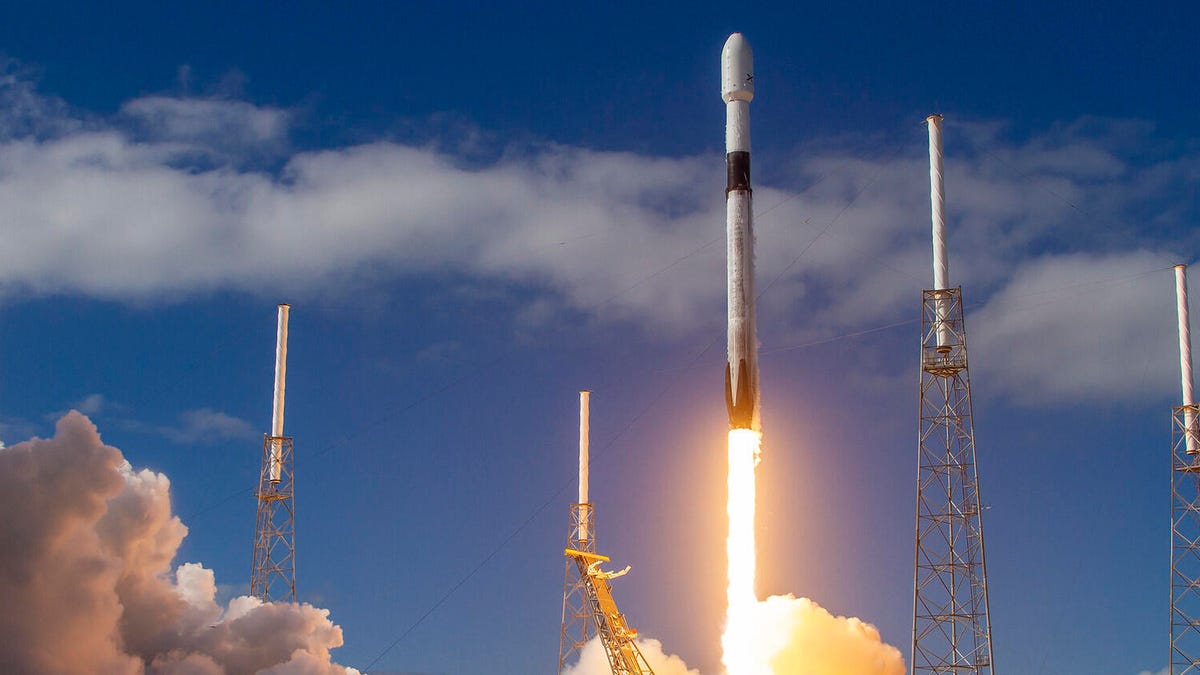Next SpaceX Starlink launch delayed by Tropical Storm Arthur
Elon Musk's company has a new solution to the problem of its mega-constellation lighting up the night sky and irking astronomers. For now, it'll have to wait.

The Falcon 9 launch in November 2019 carried 60 Starlink satellites.
The next SpaceX launch, set for later this month, will carry humans to space for the first time when a Crew Dragon takes two NASA astronauts to the International Space Station.
The company had another, more routine launch scheduled for this week, but on Monday said the planned Starlink flight will be postponed until after the historic mission. Called Demo-2, it'll return human spaceflight to US soil after a nearly decade-long hiatus.
"Standing down from the Starlink mission, due to tropical storm Arthur, until after launch of Crew Demo-2," SpaceX tweeted.
Standing down from the Starlink mission, due to tropical storm Arthur, until after launch of Crew Demo-2
— SpaceX (@SpaceX) May 18, 2020
The company initially delayed the eighth Starlink launch from Cape Canaveral in Florida until Tuesday due to the threat of wind and rains from the Atlantic storm, before opting to push the mission until after the May 27 blast-off of Demo-2.
It's been nearly a year since SpaceX launched its first batch of Starlink broadband satellites, igniting a controversy over the surprising brightness of the orbiting routers that threatens to interfere with the observations of astronomers and other scientists.
The company experimented with putting a dark coating on the satellites to resolve the issue, with reportedly mixed results. Then last month CEO Elon Musk reported that a "sunshade" had been developed to address the problem. Dubbed VisorSat, the system is exactly what it sounds like: a set of darkened shades that can be deployed to keep the sun from glinting off the bright parts of each satellite.
Musk said the first VisorSats would be included in the next batch of 60 satellites, and that future launches should be made up of all VisorSats as soon as June.
It's not clear how many of the satellites on the next Starlink launch will be equipped with the VisorSat system. SpaceX didn't immediately respond to a request for clarification.

